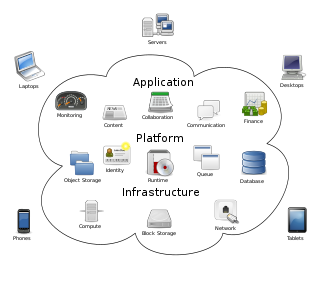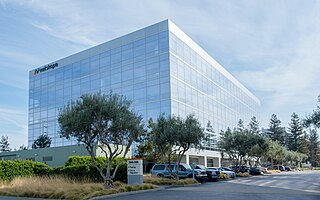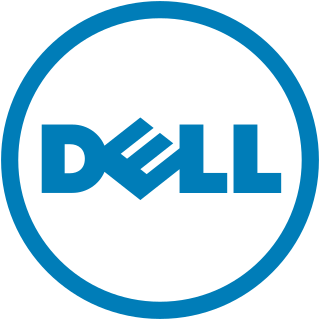Network Access Control (NAC) is an approach to computer security that attempts to unify endpoint security technology, user or system authentication and network security enforcement.
Mobile device management (MDM) is the administration of mobile devices, such as smartphones, tablet computers and laptops. MDM is usually implemented with the use of a third-party product that has management features for particular vendors of mobile devices. Though closely related to Enterprise Mobility Management and Unified Endpoint Management, MDM differs slightly from both: unlike MDM, EMM includes mobile information management, BYOD, mobile application management and mobile content management, whereas UEM provides device management for endpoints like desktops, printers, IoT devices, and wearables as well.

Symantec Endpoint Protection, developed by Broadcom Inc., is a security software suite that consists of anti-malware, intrusion prevention and firewall features for server and desktop computers. It has the largest market-share of any product for endpoint security.

Cloud computing is the on-demand availability of computer system resources, especially data storage and computing power, without direct active management by the user. Large clouds often have functions distributed over multiple locations, each location being a data center. Cloud computing relies on sharing of resources to achieve coherence and economies of scale, typically using a "pay-as-you-go" model which can help in reducing capital expenses but may also lead to unexpected operating expenses for unaware users.
Database activity monitoring is a database security technology for monitoring and analyzing database activity. DAM may combine data from network-based monitoring and native audit information to provide a comprehensive picture of database activity. The data gathered by DAM is used to analyze and report on database activity, support breach investigations, and alert on anomalies. DAM is typically performed continuously and in real-time.
Cloud computing security or, more simply, cloud security refers to a broad set of policies, technologies, applications, and controls utilized to protect virtualized IP, data, applications, services, and the associated infrastructure of cloud computing. It is a sub-domain of computer security, network security, and, more broadly, information security.
Trusteer is a Boston-based computer security division of IBM, responsible for a suite of security software. Founded by Mickey Boodaei and Rakesh K. Loonkar, in Israel in 2006, Trusteer was acquired in September 2013 by IBM for $1 billion.

Netskope is an American software company providing a computer security platform. The platform offers cloud-native solutions to businesses for data protection and defense against threats in cloud applications, cloud infrastructure, and the web. Netskope is considered a "leader in its field" status for its Cloud Access Security Brokers (CASB) product from Gartner.
Zenprise provides Mobile Device Management (MDM) solutions to enterprises. The company's solutions are available in both on-premises and cloud-based (SaaS) versions. Zenprise MobileManager and Zencloud allow companies and government agencies to manage and secure mobile devices, including iOS, Android, BlackBerry, Windows Mobile, and Symbian.

Dell Software was a division of Dell with headquarters in Round Rock, Texas, United States. Dell Software was created merging various acquisitions by Dell Inc., the third-largest maker of PCs and now a privately held company, to build out its software offerings for data center and cloud management, information management, mobile workforce management, security and data protection for organizations of all sizes.
Google Cloud Platform (GCP), offered by Google, is a suite of cloud computing services that runs on the same infrastructure that Google uses internally for its end-user products, such as Google Search, Gmail, Google Drive, and YouTube. Alongside a set of management tools, it provides a series of modular cloud services including computing, data storage, data analytics and machine learning. Registration requires a credit card or bank account details.
Software-defined protection (SDP) is a computer network security architecture and methodology that combines network security devices and defensive protections which leverage both internal and external intelligence sources. An SDP infrastructure is designed to be modular, scalable, and secure. The SDP architecture partitions the security infrastructure into three interconnected layers. The Enforcement Layer inspects traffic and enforces protection within well-defined network segments. The Control Layer generates security policies and deploys those protections to enforcement points. The Management Layer orchestrates the infrastructure and integrates security with business processes. The SDP architecture supports traditional network security and access control policy requirements, as well as the threat prevention required for enterprises implementing technologies such as mobile computing and software-defined Networking (SDN).
Cloud management is the management of cloud computing products and services.
Endpoint security or endpoint protection is an approach to the protection of computer networks that are remotely bridged to client devices. The connection of endpoint devices such as laptops, tablets, mobile phones, Internet-of-things devices, and other wireless devices to corporate networks creates attack paths for security threats. Endpoint security attempts to ensure that such devices follow a definite level of compliance to standards.

Digital Guardian is an American data loss prevention software company designed to see and stop malicious actions by users and malware on endpoints. Digital Guardian provides software both at the end-user level and in corporate networks, servers, databases, and the cloud. The company is designed to see and stop malicious actions by users and malware on endpoints. It puts data events into context and applies a granular set of rules to protect it against threats.
Oracle Cloud is a cloud computing service offered by Oracle Corporation providing servers, storage, network, applications and services through a global network of Oracle Corporation managed data centers. The company allows these services to be provisioned on demand over the Internet.

Cato Networks, Ltd. is an Israeli Secure Access Service Edge (SASE) company. The company's core product converges SD-WAN and network security into a cloud-native service. The company designs cloud services that migrate from MPLS to SD-WAN, as well as a private backbone, security as a service and cloud access services. The converged SASE platform provides secure connectivity that covers enterprise branch locations, cloud infrastructure and mobile users. In 2021 Cato was valued at $1b. The company's international headquarters is located in Tel Aviv, with development centers in USA, Israel, UK, Singapore, Japan, Netherlands and Australia. Cato has approximately 400 employees worldwide.
Lookout, Inc. is a US-based company delivering integrated endpoint-to-cloud security that enables secure productivity from anywhere while respecting user privacy. Lookout products are trusted for privacy and regulatory compliance world-wide by large corporations as well as millions of individuals for mobile security and identity protection.
Data center security is the set of policies, precautions and practices adopted to avoid unauthorized access and manipulation of a data center's resources. The data center houses the enterprise applications and data, hence why providing a proper security system is critical. Denial of service (DoS), theft of confidential information, data alteration, and data loss are some of the common security problems afflicting data center environments.
A secure access service edge (SASE) is a term coined by analyst firm Gartner. SASE was promoted for computer security in wide area networks (WANs) by delivering both as a cloud computing service directly to the source of connection rather than a data center. Security is based on digital identity, real-time context and company and regulatory compliance policies. A digital identity may be attached to anything from a person to a device, branch office, cloud service, application software, IoT system, or an edge computing location.





